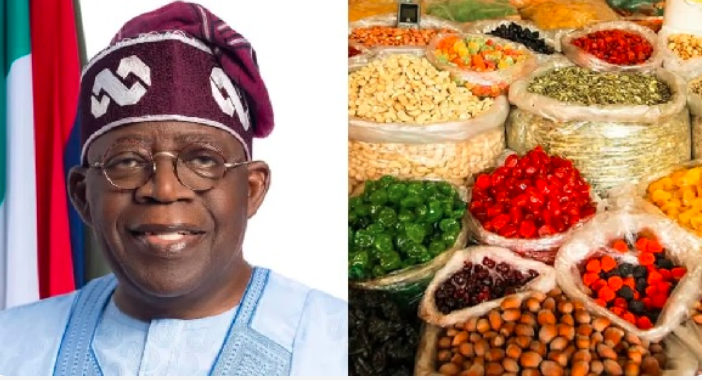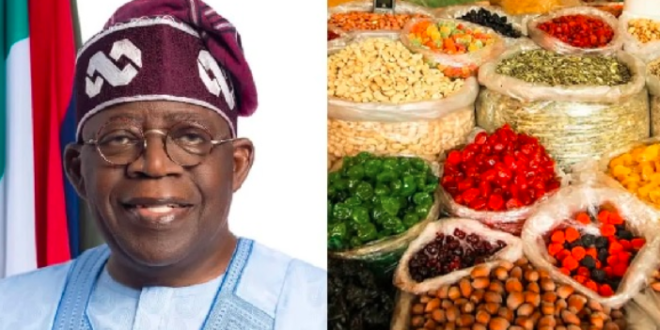The Senate has called on the federal government to as a matter of urgency address the problem of hunger in the land caused by food insecurity which has created what it described as an emergency.
According to the Senate, President Bola Tinubu led Federal government should take measures to fight the current food insecurity in the country by outlining some measures to combat the situation, just as it warned that with hunger and poverty in the land, patience, tolerance are both elastic, but they are not eternally elastic as people are already losing patience.
The Senate has also warned against the looming crisis, saying that the country would not like the kind of thing that we will see in our streets, stressing that it was time that the country especially the Executive arm of government takes every possible action as the government cannot take the people for granted for too long, adding that have come almost to the end of the patience.
The Senate noted that over the past few months, prices of goods and household consumables have seen a significant rise in the country, leading to high inflation rates, weakened purchasing power, and a general deterioration in the living conditions of the vast majority of Nigerians.
The Senate has disclosed that as an emergency solution to address the problem of food scarcity, the Federal Government has deployed 60 trucks of fertilizers to each of the 36 states of the Federation with, two per Senator and one truck for each member of the House of Representatives.
Resolutions of the Senate yesterday were sequel to a motion titled, “Urgent Need to Address Food Insecurity and Market Exploitation of Consumables In Nigeria.” It was sponsored by Senator Sunday Karimi, APC, Kogi West and Co-sponsored by the Senate Whip, Senator Ali Ndume, APC, Borno South.
In his presentation, Senator Karimi noted that in the last few months, the price of goods and household consumables have been on an abysmal rise in the country, leading to a high rate of inflation, weakened buying power, and general worsening of living conditions of the vast majority of Nigerians.
According to him, ” the latest data by Nigeria’s National Bureau of Statistics shows that food inflation in the country skyrocketed to 40.66 per cent on a year-on-year basis, a significant increase from the 24.82 per cent recorded in May 2023.”
He said that the Senate is “Aware the current market price of food items such as beans, maize, rice paddy, yam, tomatoes, and onions which initially rose by about 40% after the removal of petroleum Subsidy has now increased to over 100% to 300% without any attributable reason for the increase in prices;
Karimi said that the Senate is “Further aware that although insecurity in food-producing regions, bad roads, increase in the cost of transportation attributable to the removal of fuel subsidy and depreciation of the value of Naira, are possible factors that have contributed to the increase in the price of Food items, Household Commodities, and Consumables; the percentage of increase in the cost of transportation and some under factors listed above is significantly less than the percentage increase in the current prices of goods all over the country;
“Concerned that the greater percentage of the increase in prices of food items and consumables in the Country is not only due to these factors but to the zest of the merchants, traders, and retailers to make supernormal profits whilst they excuse the hike in price on these factors (depreciation of the Naira against the Dollar, increase in price of Petroleum Products due to Fuel price increase and insecurity in farming Regions), thereby heaping all the blame on the Federal Government;
“Notes that there is a general attitude of “Get Rich Quickly” or “Get Rich By All Means” leading many Nigerians to jettison “being their brother’s keeper” and exploiting one another to make abnormal profits: This attitude has been justified on the basis that many members of the Political Class, Technocrats, and Corporate Elites have helped themselves with Public Funds without any repercussions in Law, Nigerian Traders have thus resorted to Price Gouging to maximize profits;
“Further notes that there are reports that Farming Communities in the Border Regions with other Countries, prefer to sell their food items abroad (to these neighbouring countries), rather than domestically(to the hinterland), thereby increasing local food insecurity;
And concludes that all efforts made by the current Federal Executive to arrest the consistent increase in food inflation have not yielded the desired results, there is a need to be more pragmatic about addressing food insecurity, curbing herder farmer crises, kidnapping for ransom, and Terrorism, and ensure the development of a viable National Commodity Board to regulate the price of grains and ensure the elimination of artificial contributions to food and commodity inflation in Nigeria.”
In his contribution, Ndume who lamented that this was the first time Nigeria was listed as one of the countries battling food insecurity, said, “In their many publications, they say Nigeria is likely to experience the highest session of food insecurity globally

Source: GraphicOnline.com
 Home Of Ghana News Ghana News, Entertainment And More
Home Of Ghana News Ghana News, Entertainment And More





